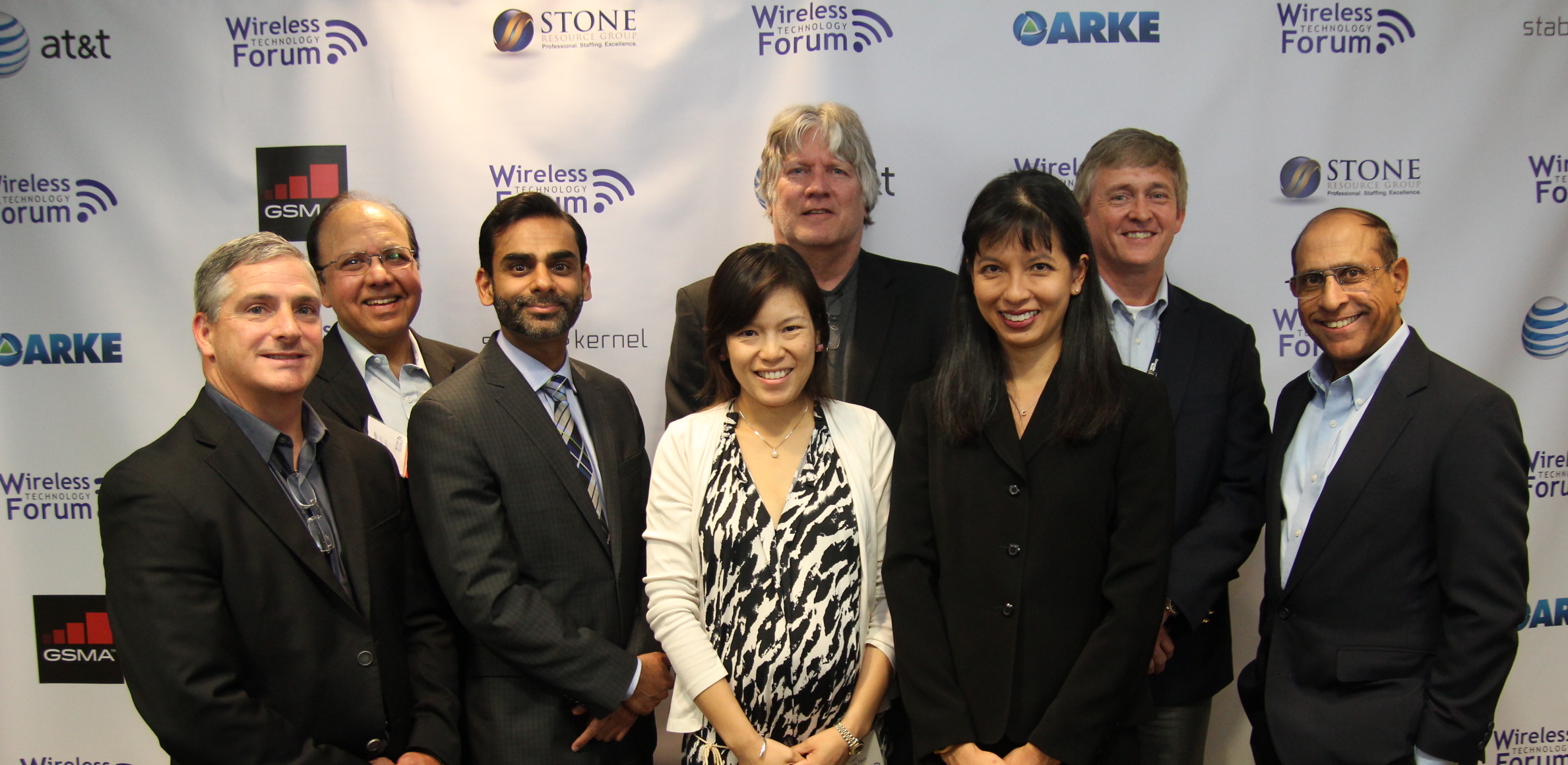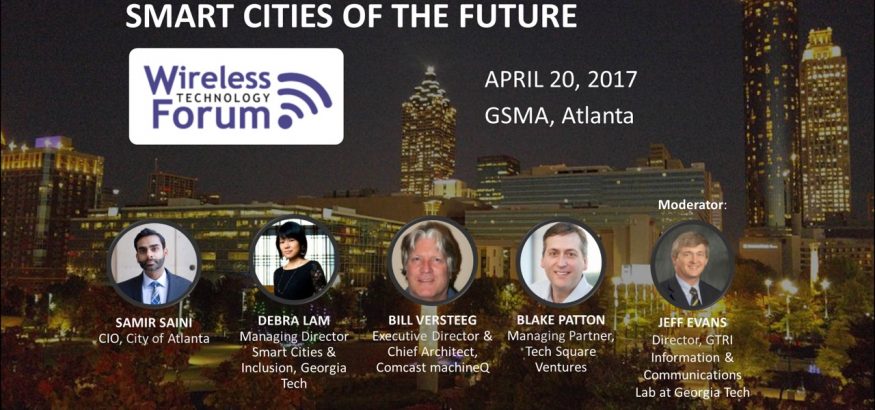
Will Atlanta become a Smart City?
Last week we had another packed house at the Wireless Technology Forum for the “Smart Cities of the Future” panel discussion with an expert panel of speakers.

First of all, why are we talking about smart cities, or even the future of smart cities?
Is Atlanta a smart city? What defines a smart city?
According to Samir Santi, CIO, City of Atlanta, “A city is smart when the city operates as one instead of siloed departments.” He further defined a smart city that measures itself against KPIs that matter to its citizens, and not internal metrics. Technologically, a smart city collects data and uses that data to ultimately improve the quality of life for its citizens.
Debra Lam, Managing Director of Smart Cities & Inclusive Innovation, Georgia Tech, brought up the concept of smart cities addressing fundamental issues of urban equality.
Where’s the Money in Smart Cities?
Experts are predicting that by 2020, smart city projects will be worth $1.5 Trillion.
Now, that’s a great reason for smart cities!
Dos and Don’ts
- Do improve the quality of life for your residents.
- Do help citizens become more productive in their homes.
- Do build a robust and dense infrastructure network that serves several verticals.
- Don’t buy more sensors than the next city for the sake of buying more sensors. Keep the objectives first and foremost.
- Don’t buy technology for the sake of buying technology and expect a ‘silver bullet’ outcome.
- Don’t be a solution looking for a problem.
Top Priorities for Atlanta
Samir stated that the city of Atlanta sends out surveys to their citizens in order to learn what is important to them. Not surprisingly, the top 2 citizen concerns are always Public Safety & Traffic.
What is Atlanta doing specifically that differentiates itself from other cities?
Partnering with a world renowned research institution
City of Atlanta is partnering with Georgia Tech, known for their engineering innovation and world class research and development. Georgia Tech is committed to this partnership by hiring Pittsburgh’s Chief of Innovation, Debra Lam as Managing Director of Smart Cities & Inclusive Innovation.
Georgia Tech and City of Atlanta are taking this partnership to the streets, specifically creating a living lab on North Avenue (near campus). If you’re not familiar with this, check out this video from Fox5News.
Samir recognized Christian Kotscher, MetroTech for their lane level vehicle counts, velocity, traffic data collection technology that will ultimately help ease traffic woes in Atlanta.
Embrace Reality
Samir was very frank with the audience and humbly admitted that the city of Atlanta doesn’t have all of the resources to implement smart city projects. Thus, they are creating a platform to make city data available to the business community and civic tech community through APIs. Samir further stated that the city needs to partner in order to succeed in the smart city race.
With the city of Atlanta making their data available, entrepreneurs are able to innovate and launch new companies. Startups have opportunities for funding though Atlanta’s strong VC community including Tech Square Ventures and others.
Bigger companies are also joining the smart cities race including Comcast with their MachineQ platform. Bill Ver Steeg, Executive Director & Chief Architect of machineQ, Comcast was on hand to talk about his smart cities work, launching in 3 cities (coming to Atlanta soon).
The smart city race is ON!
It is the partnership and hard work on all fronts that will make Atlanta the next smart city. It is still early in the smart city race, and the panelists agreed that there is no true smart city today.
I’ve lived in Atlanta for well over 20 years now and I’m proud to call Atlanta home. I’m excited that the powers that be in Atlanta are taking an offensive approach to technology by leveraging Georgia Tech, organizations that promote technology including Metro Atlanta Chamber, TAG, Wireless Forum, and VC funding for startups.
Companies large and small are competing in the smart cities race for project dollars. Large companies have resources and backing, while small companies are agile. Only time will tell, but I’m ready for a wild ride.
Acknowledgements: Thank you Chris Kocks for leading and coordinating this panel.
Speakers
- Samir Saini, CIO, City of Atlanta
- Debra Lam, Managing Director of Smart Cities & Inclusive Innovation, Georgia Tech
- Bill Versteeg, Executive Director & Chief Architect of machineQ, Comcast
- Blake Patton, Managing Partner, Tech Square Ventures
Moderator: Jeff Evans, Director, GTRI Information & Communications Lab








